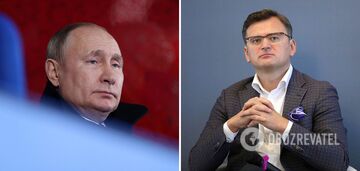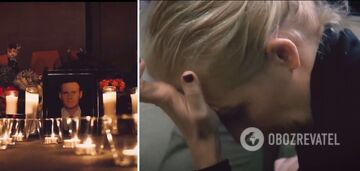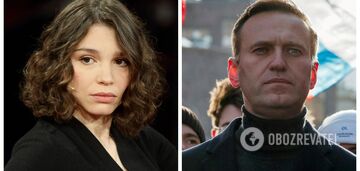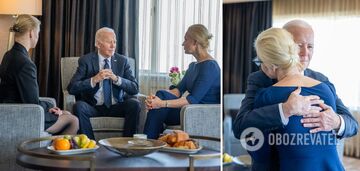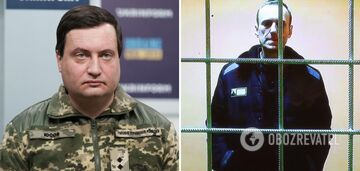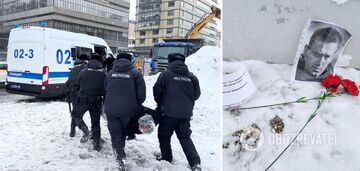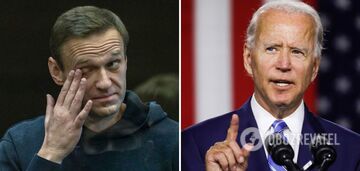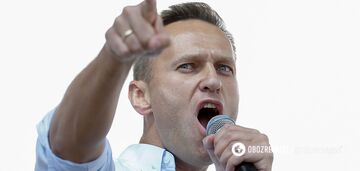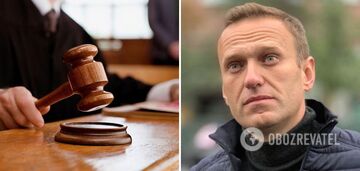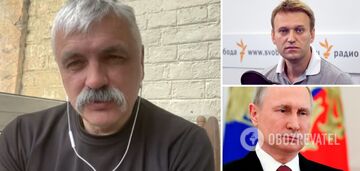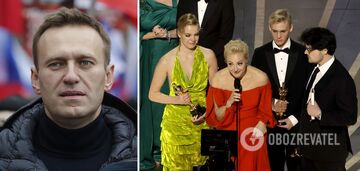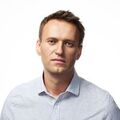
Alexei Navalny
Alexei Anatolievich Navalny is a Russian opposition politician.
Short biography
Alexei Navalny was born in the Moscow region, in one of the military towns called Butyn, on June 4, 1976. At the same time, Navalny's father came from Zalis, a former village in Ukraine that was evacuated after the Chernobyl nuclear power plant accident.
Navalny received his higher education at the Peoples' Friendship University of Russia, which he graduated from in 1998, and the Finance Academy of the government of the Russian Federation.
In 2000, Alexei Navalny began his political career, joining the "Yabloko" party. Already in 2003, he was in charge of Yabloko's election campaign in Moscow for the State Duma elections.
In 2007, Alexei Navalny quit the "Yabloko" party, and together with like-minded people created the social movement "The People. This movement functioned successfully up until 2011.
In 2009, Navalny created the law firm Navalny and Partners, and began to fight Putin's regime.
In 2013, the politician headed the People's Alliance party, which was later renamed the Party of Progress.
He participated in and organized a huge number of protest actions, which more than once overwhelmed the entire Russian Federation. He was repeatedly arrested. Was charged in a number of criminal and administrative investigations
"The Party of Crooks and Thieves.
In 2001, during a live broadcast on finam.fm , Alexei Navalny referred to the Russian pro-regime political force United Russia as "the party of crooks and thieves. Unexpectedly, this expression spread around the Internet, eventually becoming an Internet meme.
"The Yves Rocher Affair
In 2013, Alexei Navalny and his brother Oleg were accused of stealing almost 27 million rubles from Yves Rocher Vostok and another four and a half million from the Multiprocessing Company. Alexei Navalny was sentenced to three and a half years of suspended imprisonment and a large fine.
"He's Not Your Dimon."
An investigative film about Russian Prime Minister Dmitry Medvedev's illicit enrichment. The film became extremely popular on the Internet, and its title became the motto of a series of anti-corruption protests that took place across Russia.
Deripaska and Nastya Rybka
Alexei Navalny published a new investigation into Russian oligarch Oleg Deripaska's ties to Russian Deputy Prime Minister Sergei Prikhodko, in early 2018. The success of the investigation was ensured by the escort girl Nastya Rybka - on her Instagram page Navalny's team found a video of Nastya Rybka herself, as well as Deripaska and Prikhodko vacationing on an expensive yacht.
Navalny's poisoning in the detention center
In 2019, shortly after the protests over the mass exclusion of representatives of the non-systemic opposition from the Moscow City Duma elections, Alexei Navalny was arrested for 30 days, allegedly for organizing an unsanctioned rally. Shortly thereafter, the politician was hospitalized with a diagnosis of "acute allergic reaction. However, rumors that Alexei Navalny had been poisoned immediately started to spread online.
Navalny poisoning at the airport
On August 20, 2020, Navalny became ill on a plane flying from Tomsk to Moscow. His spokeswoman Kira Yarmysh reported that Navalny had tea in the airport cafe in the morning and felt ill and lost consciousness on the plane. The politician was rushed from the plane to the intensive care unit. As of the morning of August 20, the politician was in a heavy coma. He was hooked up to a ventilator.
Rumors that Navalny had died immediately spread online.
Later, on August 22, the politician was taken to the German clinic Charite for treatment. Navalny was brought out of the coma only on September 7. A week later, he was taken off a ventilator and allowed to get out of bed.
On September 22, he was discharged from the Charite, but stayed in Germany to undergo rehabilitation.
In Germany, after numerous tests, it was determined that the politician had been poisoned with the nerve agent Novichok. According to investigators, Russian Federal Security Service (FSB) officers were behind the poisoning of Navalny. Navalny even had a telephone conversation with one of them.
Return to Russia
On January 17, 2021, Navalny returned to Russia after treatment and rehabilitation in Germany.
OMON riot cops were brought to the Vnukovo airport (Moscow), where the politician was scheduled to fly in, and a fence was put up. Some of the politician's associates were detained.
The arrival of the opposition leader himself was first delayed, and then his flight was diverted to "Sheremetyevo. There, the politician was detained at the passport control. Russian authorities explained that this was due to "violation of the probation period.
On January 18, the court ordered Navalny's arrest for 30 days. He was detained in the Matrosskaya Tishina pre-detention center.
Protests against Navalny's arrest
On January 23 and 31, large-scale protests against Navalny's trial took place across Russia. People also demanded the immediate release of all political prisoners.
At the same time, law enforcement officials behaved very aggressively at the rallies. Numerous videos of protesters being beaten and excessive force used during arrests have hit the web.
On the day of the January 23 protests, over four thousand people were detained across Russia. On January 31, more than five thousand more people were detained, a record during the protests in Russia.
Navalny convicted
On February 2, 2021, the Moscow City Court sentenced Navalny to 3.5 years in prison and a fine of 500,000 rubles (more than $6,500).
The court also took into account the house arrest under which the politician was kept for about a year. Thus, he will spend 2.8 years in detention and will be released by 2023.
The opposition activist's defence said that they would appeal the court's decision.
Spontaneous protests erupted in Russia after the court verdict. More than a thousand people were detained overnight.
Western reaction to the court verdict
Representatives from around the world condemned the conviction of Russian opposition activist Aleksei Navalny and demanded that he be freed.
Read more in the article OBOZREVATEL.
Pro-Ukrainian position
Alexei Navalny has expressed his support for the Revolution of Dignity. Repeatedly condemned the annexation of Crimea and Russia's invasion of Donbass. He called on the U.S. and the EU to tighten sanctions against individual Russian officials.
Navalny declares that if he becomes president of the Russian Federation, he will immediately withdraw Russian troops from Ukraine.
Personal life
The politician is married. Navalny's wife is Yulia Borisovna Navalnaya. They have two children: Zakhar and Daria.
Activity in the network
Facebook. Alexei Navalny's Facebook page is subscribed to by almost half a million people.
Twitter. Navalny's Twitter account has more than two million readers.
Instagram. The appearance of new photos of Navalny in Instagram is followed by 800,000 users.
YouTube. Alexei Navalny's YouTube channel has 2.8 million subscribers.
LiveJournal. Despite its colossal audience, Navalny's LiveJournal account was shut down in 2014.



